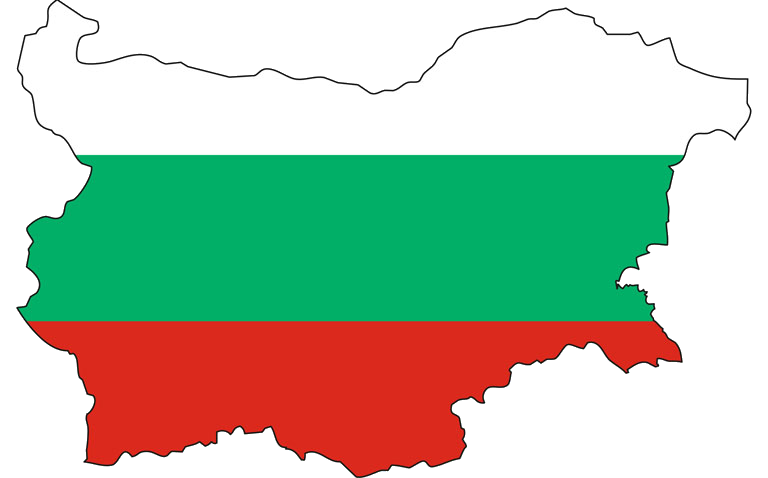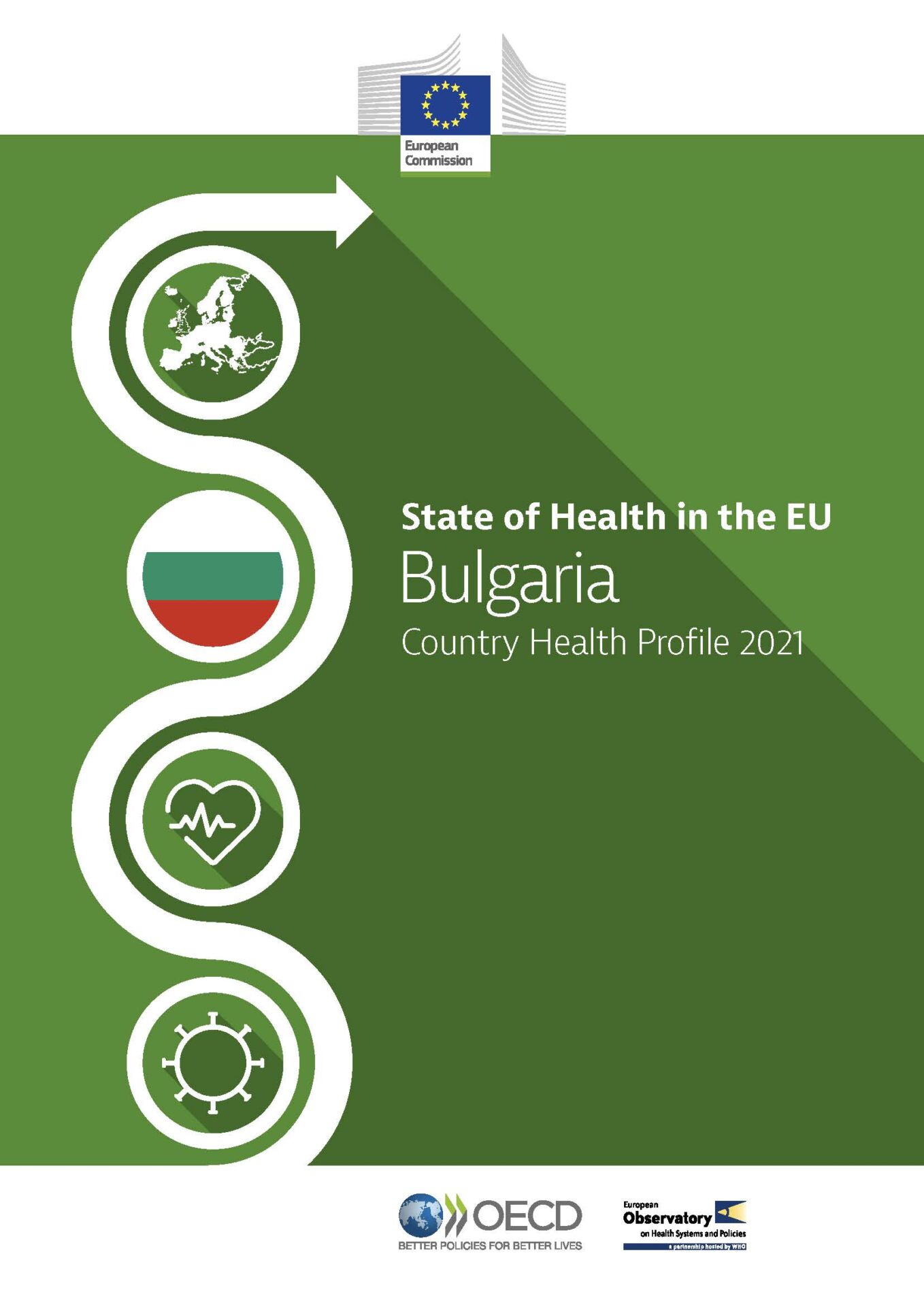The Covid-19 pandemic has temporarily reversed years of progress in life expectancy for people in Bulgaria, for whom life expectancy was already the lowest in the EU in 2019.
Despite health system improvements over the last decade, the impact of persistently high risk factors, high out-of-pocket payments and excessively hospital-centred care continue to hamper the system’s performance.
The Covid-19 pandemic highlighted the need for additional investment in the health sector, including better preparedness for future health system shocks. For Bulgaria, this challenge also includes investment to create a uniform health information system to speed up the use of e-health and to ensure appropriate working conditions for the health workforce.
Bulgaria’s health status
Overall life expectancy at birth in Bulgaria temporarily fell by 1.5 years in 2020 compared to 2019, largely due to the high number of deaths from the Covid-19 pandemic. Stroke, ischaemic heart disease and lung cancer are the leading causes of death and accounted for one third of all deaths in 2018.
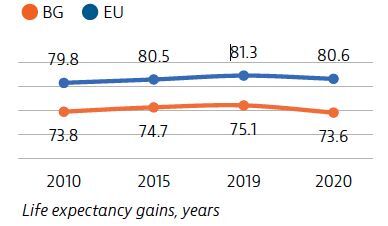
Risk factors
Smoking, unhealthy diets, alcohol consumption and low physical activity are responsible for nearly half of all deaths in Bulgaria. The adult and adolescent smoking rates are the highest in the EU. Alcohol consumption among adolescents is also a concern. In contrast, obesity among adults is below the EU average.
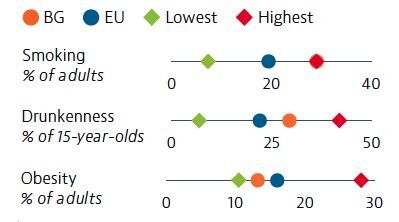
Bulgaria’s health system
Bulgaria’s health expenditure per capita has doubled overall since 2005. However, it remains much lower than that of the EU as a whole, both in absolute terms and as a share of GDP. Public financing of the health system accounted for 61% of health spending in 2019. Out-of-pocket spending (38%), driven mainly by costs for outpatient pharmaceuticals, was more than 2.5-times the EU average.
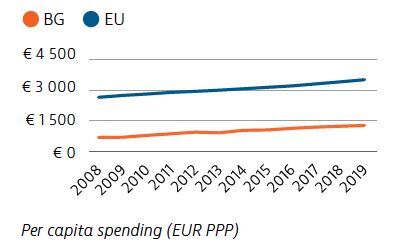
Effectiveness
Deaths from both preventable and treatable causes are well above the rates for the EU as a whole, reflecting weak primary prevention and health promotion activities, as well as the need to improve diagnosis and treatment protocols for leading causes of death. Survival rates for the most prevalent cancers are among the lowest in the EU.
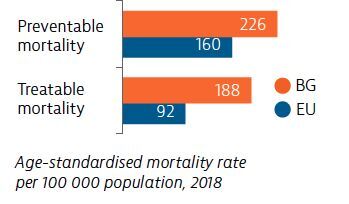
Accessibility
Prior to the Covid-19 pandemic, Bulgaria’s rate of self-reported unmet medical needs had declined to reach just below the EU’s average. However, during the first 12 months of the pandemic, nearly 25% of the population reported having to forgo care compared with 21% in the EU27. Out-of-pocket spending levels, insurance coverage gaps, referral quotas and uneven distribution of medical personnel and equipment across the country remain challenges to access.
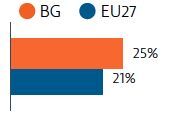
Resilience
Bulgaria had enough intensive care unit and acute bed capacity to treat Covid-19 cases when the hospital system came under strain. The rollout of Bulgaria’s Covid-19 vaccination campaign has been slow and, as of the end of August 2021, only 17% of the population had received two doses (or equivalent).
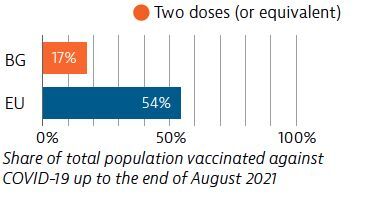
OECD/European Observatory on Health Systems and Policies (2021), Bulgaria: Country Health Profile 2021, State of Health in the EU, OECD Publishing, Paris/European Observatory on Health Systems and Policies, Brussels.



